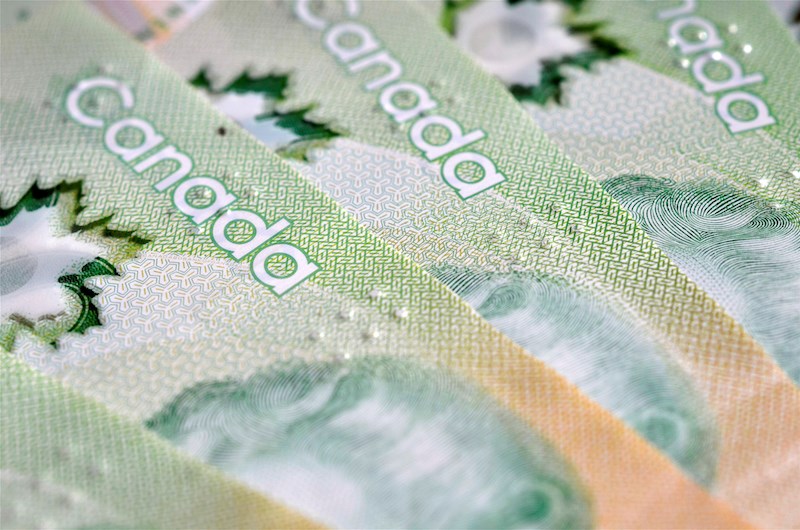The Canadian dollar today hit a more-than-six-month high versus its U.S. counterpart: $0.7445, according to data from Investing.com.
The last time the loonie was this high was March 7, when it hit a high of $0.7452, . That rate is below where the currency was at the start of the year: $0.7559.
Central 1 Credit Union chief economist Bryan Yu told BIV this afternoon that one main factor prompting the Canadian dollar's value to rise is weakness in the U.S. dollar, following the , to the 4.75-to-5-per-cent range.
U.S. Federal Reserve chair Jerome Powell also projected that another 50 basis points worth of cuts is likely to come by the end of the year, Yu said.
The Bank of Canada had been well ahead of the U.S. when it came to interest rate cuts. Its head, governor Tiff Macklem, announced three consecutive 25-basis-point cuts starting in June, bringing the country's interest rate to 4.25 per cent, and he to expect more interest-rate cuts later this year.
Lower interest rates can deter investments from foreign investors, thereby causing less demand for a country's currency. That can cause those currencies to lag in value.
The Canadian currency historically has been considered a petro-currency because the country is rich with oil and is the world's fifth largest oil exporter by value, . Rising tensions in the Middle East, particularly recently between Israel and Lebanon, could be one reason why the benchmark West Texas Intermediate (WTI) oil price is up by more than one per cent today, to around US$71.5. While the U.S. exports more oil than does Canada, that is not on a per-capita basis and the oil price tends to impact the Canadian dollar more than the U.S. greenback.
Yu said another factor that could be impacting the Canadian dollar today is greater investor confidence in the global economy following moves by the Chinese government in the past day to stimulate the flagging Chinese economy. A stronger Chinese economy would stimulate trade worldwide, and provide more strength for countries such as Canada that have strong trade ties with China and are more dependent on strong global trade.
China's central bank, the People's Bank of China (PBOC), today announced plans to cut its benchmark interest rate and lower the amount of cash that its banks need to hold in reserve — something that would free up capital to enable those banks to lend more money to clients, thereby stimulating the economy. The PBOC also said it would cut the interest rate payable on existing mortgages, and lower down payments for second homes, among other measures.
Yu said that a stronger Chinese economy would help the B.C. economy more than the economies of other provinces.
"We do have a higher share of our exports ending up in China relative to the rest of Canada," he said.
"We also have significantly more, at least historically, visitors from China in terms of tourism filtering into the B.C. economy."
More Chinese tourists would be welcome news for the tourism sector.
Pre-pandemic China provided the third highest number of visitors to Canada through B.C. entry points, after the U.S. and the U.K.
In July, the most recent month for which Destination B.C. has data, there were 19,258 visitors from mainland China. That is down 63.6 per cent from the same month in 2019 — the biggest drop in visitors among all countries. In the first seven months of 2024, visits from mainland Chinese nationals to Canada through B.C. entry points were down 53.8 per cent.
One obstacle in getting Chinese visitors to B.C. is that there are fewer airlines that fly non-stop between Â鶹´«Ã½Ó³»International Airport and airports in mainland China.
Pre-pandemic there were eight such airlines, flying . , which operated a total of seven flights per week: Air Canada, Hainan Airlines, Xiamen Airlines, and Sichuan Airlines.
Air China has since also resumed flying non-stop flights between Beijing and Vancouver, with one flight each week, according to the Â鶹´«Ã½Ó³»Airport Authority. China Eastern, China Southern and Beijing Capital Airlines no longer fly into Vancouver.

